Business
FG Clarifies $5bn Aramco Loan Status
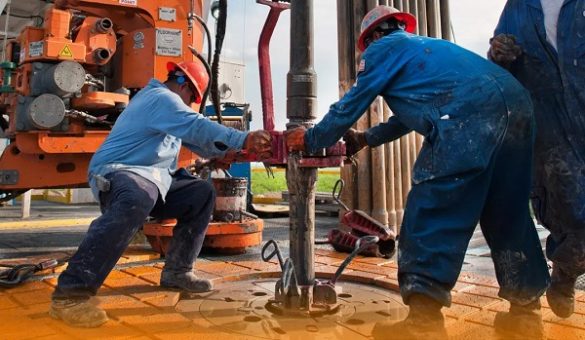
Amid ongoing conversations around a proposed crude-for-loan arrangement with Saudi oil giant Aramco, the federal government says it remains committed to deploying innovative and fiscally responsible financing strategies to optimise Nigeria’s oil assets, enhance external liquidity, and strengthen macroeconomic stability.
In a statement issued on Wednesday, the Federal Ministry of Finance addressed recent media reports suggesting that discussions over a $5 billion oil-backed loan deal with Aramco may have collapsed. The ministry stated that no final decision has been taken on the matter and urged the public to disregard speculations about the status of the negotiations.
“While market speculation is not uncommon in the context of ongoing economic reforms and transactions, no final decision has been announced by the Government, and commentary suggesting the collapse of any such initiative is unfounded,” the ministry said.
This clarification follows a report earlier in the week by Reuters, which indicated that the proposed oil-for-loan deal between Nigeria and Aramco had stalled. The report, citing four unnamed sources, said the deal was experiencing delays due to a recent downturn in global crude oil prices, which had raised concerns among prospective financiers.
According to the report, the deal, potentially Nigeria’s largest oil-backed loan, would have been the first of its kind involving Aramco at such a scale in the country. However, the sharp drop in global oil prices, along with evolving market indices, reportedly dampened interest among Gulf and African banks expected to co-fund the facility.
The proposed $5 billion loan is part of President Bola Tinubu’s broader external borrowing strategy, which includes a recent request to the National Assembly for approval to borrow $21.5 billion to support the 2024 budget. Sources familiar with the deal said President Tinubu first initiated talks during a bilateral meeting with Saudi Crown Prince Mohammed bin Salman in Riyadh at the Saudi-African Summit in November 2023.
As part of the loan terms, Nigeria would be required to allocate at least 100,000 barrels of crude oil per day to back the facility. However, oil price volatility and output constraints are reportedly complicating the structure of the arrangement.
Bonny Light, Nigeria’s flagship crude blend, is currently trading at around $78 per barrel, slightly above the $75 per barrel benchmark in the 2024 federal budget. Despite this, actual production remains below target. The May report from the Organisation of Petroleum Exporting Countries (OPEC) shows Nigeria produced just under 1.5 million barrels per day (bpd) in April, falling short of the 2 million bpd budgeted output.
Years of underinvestment in the oil sector have hindered Nigeria’s ability to ramp up production. At the same time, the country is using a significant portion of its oil output, estimated at 300,000 bpd, to service existing oil-backed loans, primarily through the Nigerian National Petroleum Company Limited (NNPC Ltd). While one of these facilities is expected to be paid off this month, lower oil prices mean Nigeria may need to allocate more barrels for debt servicing, which in turn affects its capacity to secure new deals.
The slow progress in the Aramco discussions is also attributed to concerns from participating banks over delivery commitments. Some of the lenders involved — said to include Gulf banks and at least one African financial institution — reportedly fear there may not be enough crude available to meet the loan terms due to existing obligations and rising joint-venture costs.
To address production shortfalls and increase oil revenue, the federal government has issued executive orders aimed at lowering production costs and incentivising upstream investments.
These efforts are part of a broader push to stabilise the country’s fiscal outlook amid mounting budgetary needs and global market headwinds.
Despite the current challenges, the federal government maintains that its financing decisions will remain anchored on transparency, accountability, and the effective utilisation of the country’s oil resources.
Thenationonlineng.net
Business
Black Market Naira To Dollar Exchange Rate Today 12th January 2026

What is the Dollar to Naira Exchange rate at the black market, also known as the parallel market (Aboki fx)?
You can swap your dollar for Naira at these rates.
How much is a dollar to naira today in the black market?
The exchange rate for a dollar to naira at Lagos Parallel Market (Black Market) players buy a dollar for N1490 and sell at N1505 on Sunday, 11th January 2026 according to sources at Bureau De Change (BDC).
Black Market Exchange Rate Today 12th January, 2026
Buying Rate N1485
Selling Rate N1500
The exchange rate between the US dollar (USD) and the Nigerian naira (NGN) which rate we have given above; is a topic of high constant interest for people who are Nigerian and businesses and policymakers in Nigeria.
This rate of dollars to naira exchange rate influences not only the cost of imported goods but also the cost of travel, international education, and even local prices of certain commodities.
Please note that the Central Bank of Nigeria (CBN) does not recognize the parallel market (black market), as it has directed individuals who want to engage in Forex to approach their respective banks.
Business
BREAKING: Petrol Depot Owners Crash Prices To Cheapest; Details Emerge
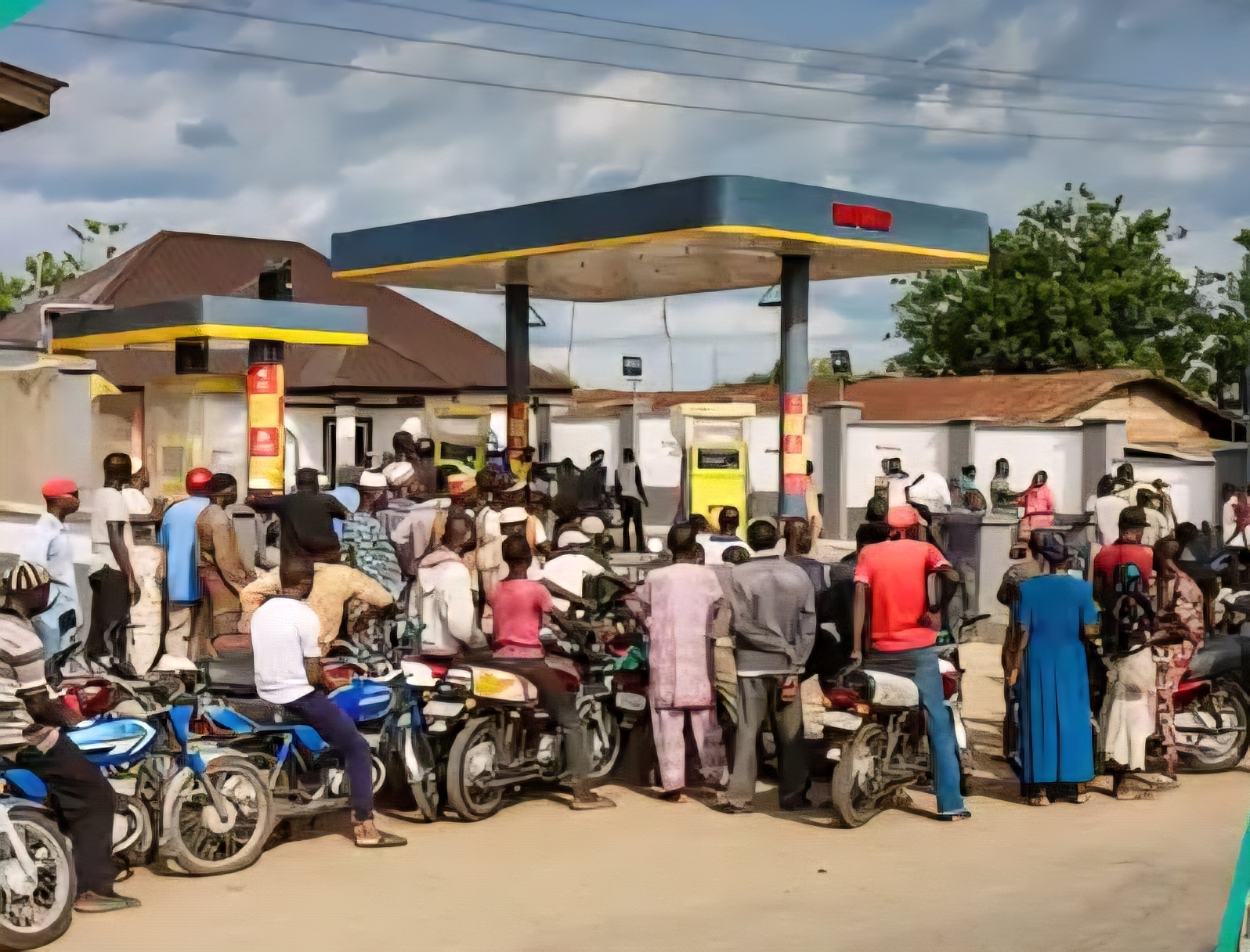
Petrol prices at Nigerian depots have dropped to their lowest levels in months as intense competition grips the downstream market, following the apparent collapse of the fuel supply agreement between the Dangote Petroleum Refinery and independent marketers.
Fresh findings show that depot owners have slashed ex-depot prices to as low as N710 per litre, a sharp reversal from the steep hikes recorded just weeks earlier.,
In the first week of January 2026, depot owners sharply increased gantry prices after reports emerged that the Dangote Refinery had shut down its petrol production unit for maintenance.
Although the refinery denied the reports, the speculation was enough to jolt the market.
Depot prices surged, and the increases quickly filtered through to filling stations nationwide.
Independent marketers raised gantry prices from around N720 per litre to over N800 per litre, with analysts noting that depot operators were exploiting uncertainty surrounding Africa’s largest refinery.
Depot owners reverse course as competition intensifies
The price spike, however, has proven short-lived.
Checks reveal that depot owners have now reversed course, cutting prices aggressively to stay competitive with Dangote Refinery’s pricing structure, especially as fresh fuel imports enter the Nigerian market.
Data from PetroleumPriceNG shows that several major depots reduced prices significantly in recent days.
As of Sunday, January 11, 2026, ShellPlux sold petrol at N710 per litre, MAO at N715, while A.Y.M.
Falling crude oil prices add more pressure
Energy experts say global oil market dynamics are also contributing to the decline in local petrol prices.
“Crude oil is currently trading between $50 and $60 per barrel in the international market,” energy policy analyst Adeola Yusuf told Legit.ng.
According to him, ongoing geopolitical tensions involving Venezuela and Iran have pushed crude prices lower, with direct implications for refined fuel costs.
“Crude oil is often used as a political tool and is highly sensitive to geopolitical developments. When prices drop, refined product prices usually follow, especially in domestic markets,” Yusuf explained.
Business
Good News: Cooking Gas Prices Drop As LPG Supply Improves Across Nigeria
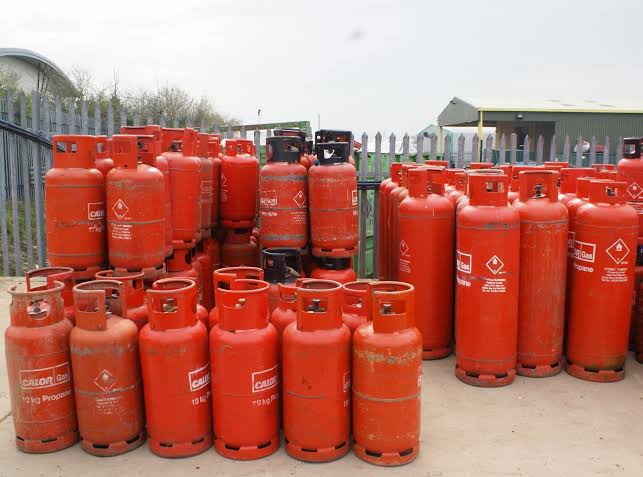
Prices of liquefied petroleum gas (LPG), commonly known as cooking gas, are crashing in several parts of the country as retailers report improved supplies.
According to a market survey by PUNCH, retailers and consumers confirmed that prices have dropped and the product has become more available across the country.
This development follows months of scarcity, which led to a nationwide hike in prices. The scarcity peaked in September 2025.
Consumers in Lagos, Ogun, Oyo and other states confirmed that they purchased cooking gas within the N1,050 to N1,400 range. Some major marketers were also reported to be selling directly to consumers at around N900 per kilogramme.
For many households, the current prices represent a significant improvement from the sharp increases recorded last year, when LPG prices surged after a dispute involving the Dangote refinery and the Petroleum and Natural Gas Senior Staff Association of Nigeria (PENGASSAN) led to the shutdown of some gas facilities.
Despite the improvement, several consumers said they were hopeful that prices would fall below N1,000 per kilogramme in the new year, arguing that lower costs are critical to promoting clean cooking and reducing reliance on firewood and kerosene.
Speaking on the situation, the National Chairman of the Liquefied Petroleum Gas Retailers branch of the Nigeria Union of Petroleum and Natural Gas Workers (NUPENG), Ayobami Olarinoye, said the LPG market had become relatively stable, with increased supply reaching Lagos.
According to Olarinoye, some off-takers are now receiving gas in Apapa, Lagos, helping to ease availability challenges experienced in previous months.
He explained that retail prices at street-level outlets currently range between N1,300 and N1,400 per kilogramme, noting that costs vary based on neighbourhoods, transportation and logistics.
Olarinoye added that prices could be lower at filling stations and gas plants, where operational and distribution costs are reduced.
He further disclosed that retailers currently purchase LPG from major marketers at prices between N960 and N1,050 per kilogram, depending on the supplier. According to the NUPENG official, sellers offering LPG below N1,000 per kilogramme are typically major dealers who own their own plants and sell directly to end users and do not distribute to retailers.
-
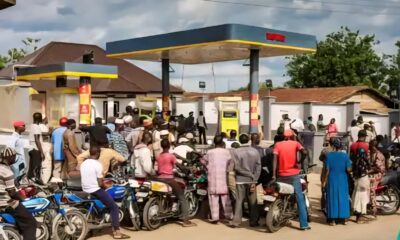
 Business16 hours ago
Business16 hours agoBREAKING: Petrol Depot Owners Crash Prices To Cheapest; Details Emerge
-

 News2 days ago
News2 days agoBuhari’s Ex-Minister Pantami Breaks Silence Over Alleged Wedding Plan With Aisha Buhari
-
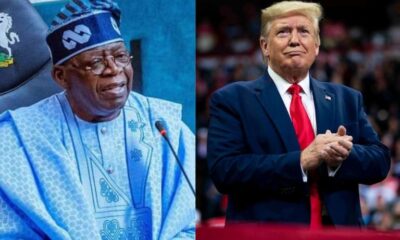
 News1 day ago
News1 day ago“Do Not Test Trump’s Resolve”: US Issues Fresh Threat To Nigeria
-
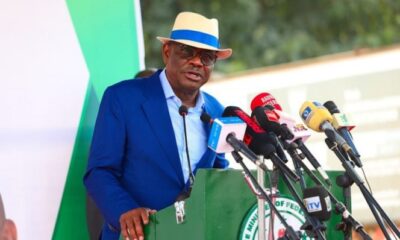
 Politics4 hours ago
Politics4 hours agoFCT Minister Wike Reacts To Call For Tinubu To Sack Him
-

 Lifestyle2 days ago
Lifestyle2 days agoChimamanda: Heartbreaking Details About What Killed Author’s Late Son Emerge
-

 Entertainment22 hours ago
Entertainment22 hours agoSO SAD: Actress and Content Creator Sunshine D!es After Surgery; Details of Last Moment Trends
-

 Sports2 days ago
Sports2 days agoAFCON: Nigerian Billionaire Splashes Dollars On Super Eagles
-

 News16 hours ago
News16 hours agoBREAKING: KWAM 1 Writes Ogun Govt, Accuses Fusengbuwa Ruling House of Plot to Exclude Him From Awujale Selection






